Treating parvo in puppies is a task in itself!! Even with advancements in vaccinations, parvo in puppies remains a common disease. Targeting the root cause of parvo can avoid the development of this disease but we know you aren’t here for that!!
Treating parvo in puppies will need professional care so it’s best to contact your vet beforehand. As puppies are susceptible to different diseases it’s best to look out for a trusted care facility early on. Our expert vets in Ada and Paul’s Vally can also help if you live in Oklahoma.
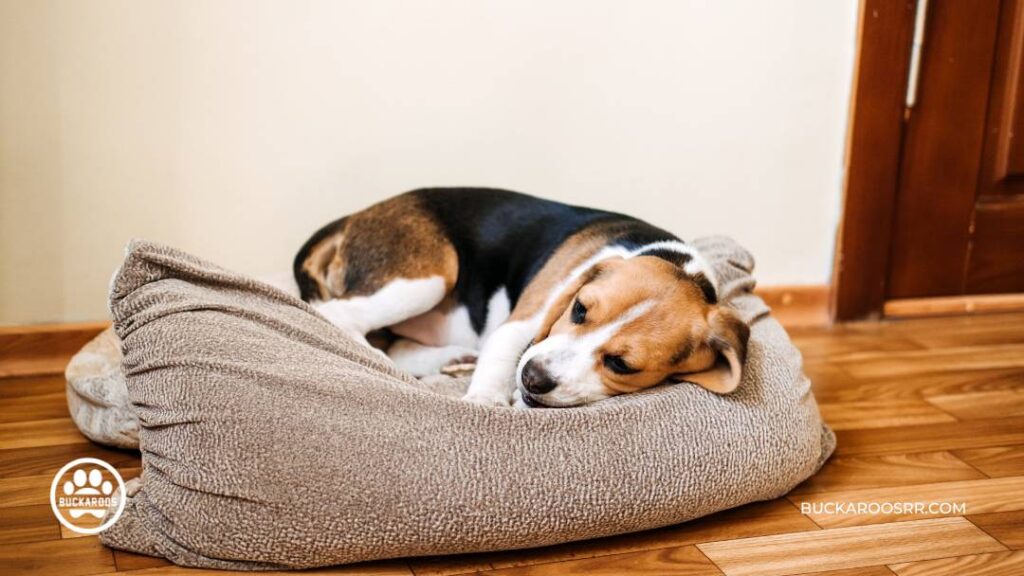
Treating Parvo in Puppies
Canine parvovirus is a common pup disease but can be treated with proper vaccination. It first emerged in the 1970s and can withstand harsh conditions without a host. So administering the parvo vaccine to your pup should be your number one choice. Treating parvo in puppies is necessary as long-term exposure can damage their intestinal tract, bone marrow, and heart muscles.
A vet will diagnose your puppy with parvo by analyzing their physical symptoms and blood results. They will also check your puppy’s feces to look for parvo antigens. There is no such actual cure for parvo but controlling the symptoms can work in reducing the extent of the disease.
Parvo in puppies can hamper their immune functioning thus leading to the development of secondary diseases. These can in turn destroy the overall health of your pup and can even lead to death. Here your vet can provide appropriate medications for both bacterial and viral infections to calm down their severity and promote recovery.
Recovery of parvo in puppies depends on the initial onset of the disease. If the puppy can survive the first four days of the virus then they will get through it. Puppies with parvo can get over the illness within 7 days. It is advised to take proper care throughout the recovery.
Treatment Stages of Parvo in Puppies
When puppies are diagnosed with parvo they go through six stages before the pup finally recovers.
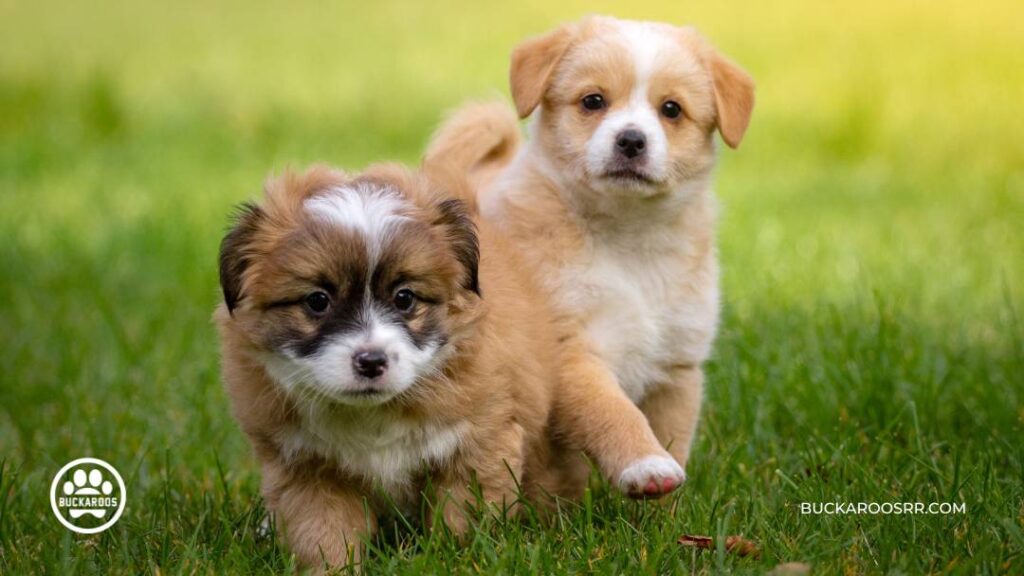
Stage 1- Exposure to Parvo in Puppies
At this stage, the puppy gets exposed to the virus. Parvo can affect both vaccinated and unvaccinated puppies or dogs. So it’s important to take good care of your pup’s health and avoid them getting close to the following carriers.
- An infected dog or puppy
- Infected feces
- Infected soil or ground
- Infected dog’s owner
- Infected objects
All these things carry a potential risk of causing parvo in puppies. Just sniffing or licking the above carriers can cause parvo.
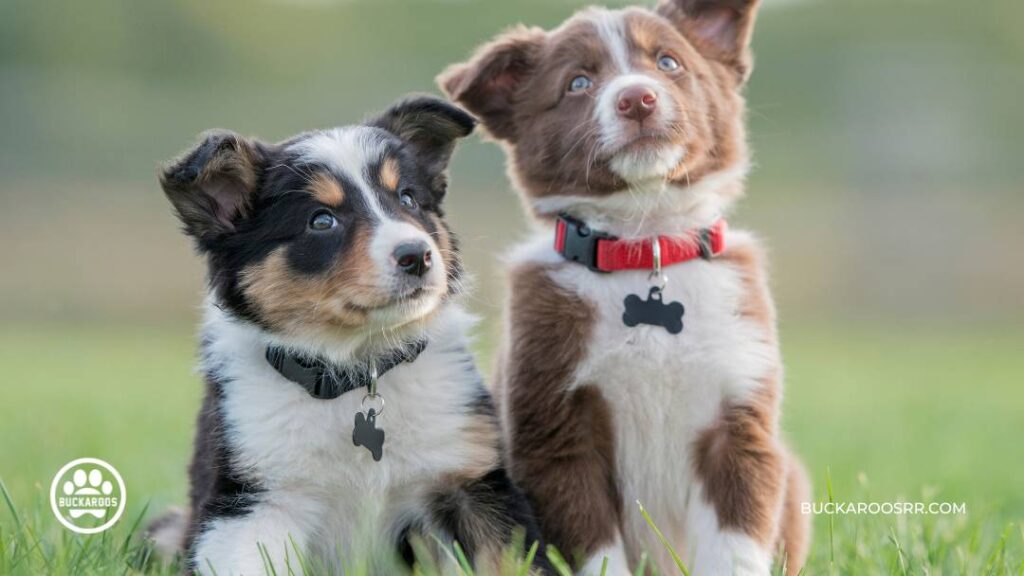
Stage 2- Development of Parvo in Puppies
This happens just after the virus’s exposure to your pup. At this stage symptoms become visible and the puppy’s health starts getting worse. This stage usually lasts 3 to 7 days. Treating parvo in puppies becomes crucial at this stage.
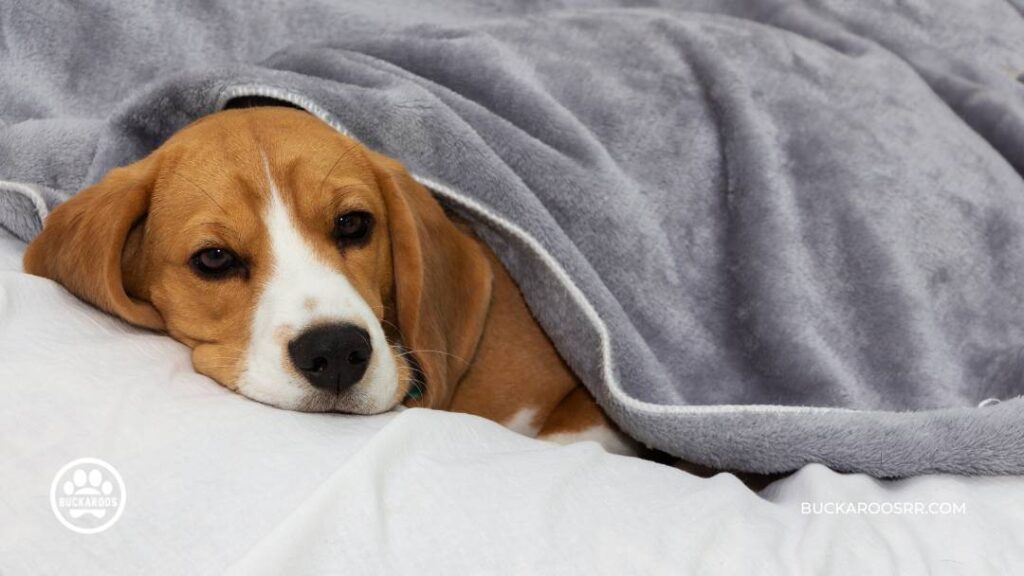
Stage 3- Symptoms of Parvo in Puppies
After five days, symptoms of parvo in puppies become visible. The initial symptoms show up with-
- Constant vomiting
- Lack of energy
- Food aversion
- Low mood
The symptoms start with food aversion and depression and then are followed up by diarrhea and vomiting. This leads to dehydration and loss of energy followed by a fast heart rate and intestinal problems. If proper treatment for parvo in puppies is not provided it can lead to death.
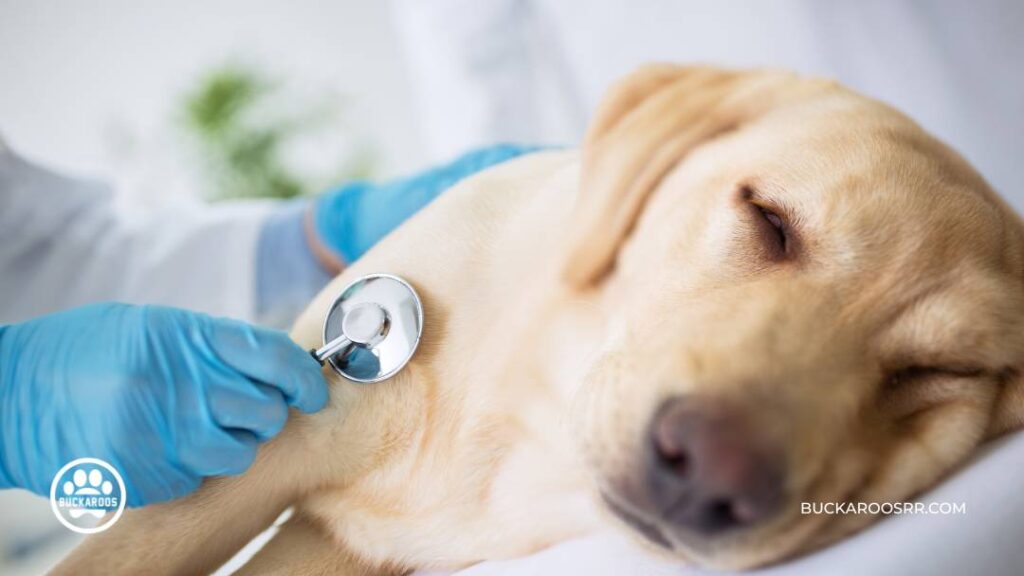
Stage 4- Diagnosis of Parvo in Puppies
Our top veterinarians in Ada go forward with an ELISA test administered over the dog’s feces. It diagnoses parvo in dogs within 15 minutes. To double-check the findings a white blood cell count is done to derive strong results. Both of these symptoms with bloody diarrhea help with treating parvo in puppies.
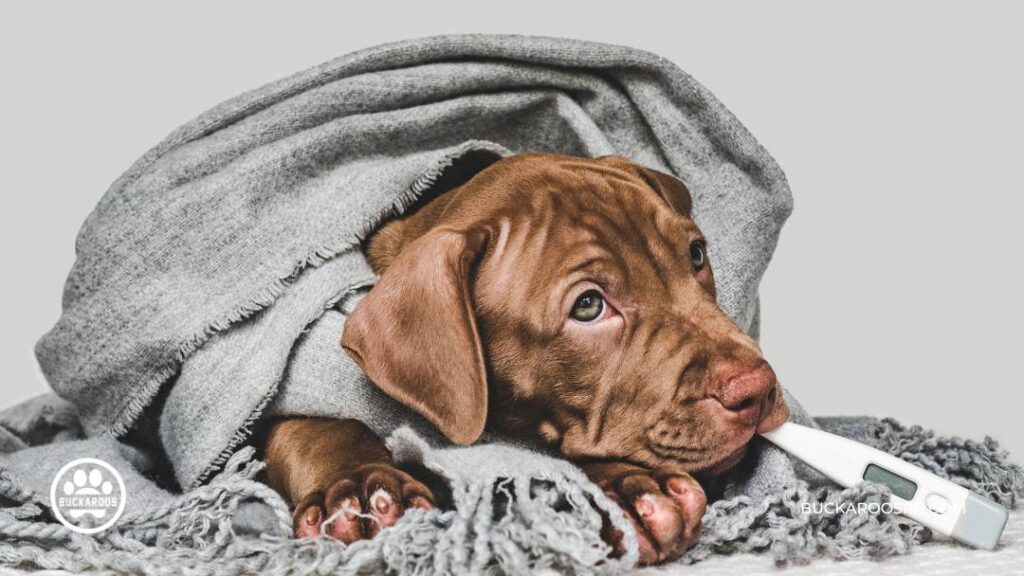
Stage 5- Treatment of Parvo in Puppies
Treatment of parvo in puppies starts immediately after diagnosis and hospitalization. Till today, there is no such effective treatment available for parvo. The vet will focus on the secondary symptoms to treat parvo. These include diarrhea, vomiting, dehydration, illness, etc.
Focusing on alleviating the secondary symptoms of parvo in puppies will improve their immune system. For treating parvo in puppies the vet will suggest antibiotics like-
- Potassium
- Dextrose
- Baytril (Enrofloxacin)
- Metronidazole
- Amoxicillin
Our expert vets in Ada and Pauls Valley, also focus on giving the right nutrition to your puppy. A constant dose of IV fluids is injected to avoid dehydration and promote faster recovery.
Even though parvo is a deadly disease, treating puppies with proper veterinary care will increase their chance of survival.
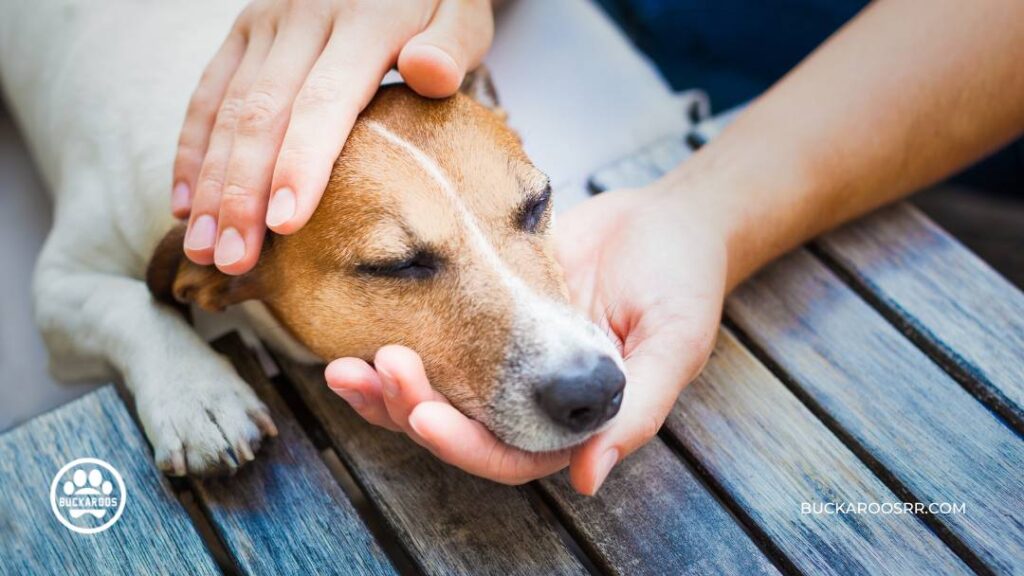
Parvo in Puppies Treatment Cost
Treating parvo in puppies is quite expensive. On average treating parvo costs around $550 to $8500. This value changes according to your location. As the amount is quite high, it is advised for all dog parents to get pet insurance early on!
With the increasing risks of parvo, it’s important to get your pup vaccinated beforehand.
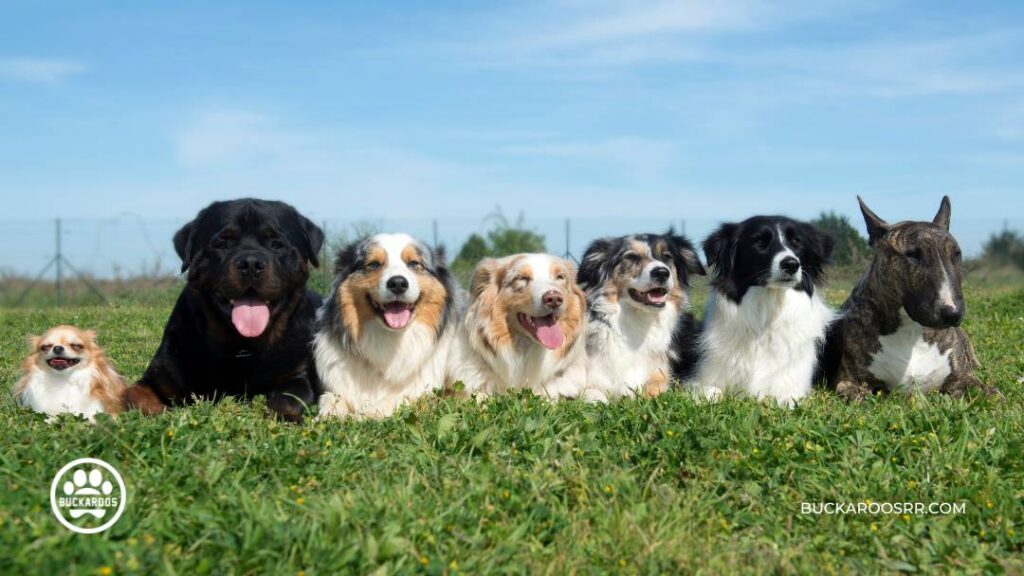
Breed With High Risk of Parvo
Some dog breeds born with a higher risk of parvo show intense symptoms and require more time for recovery. These include-
- Rottweilers
- Doberman Pinschers
- Labrador Retrievers
- German Shepherds
- Bull Terrier breeds
- Alaskan sled dogs
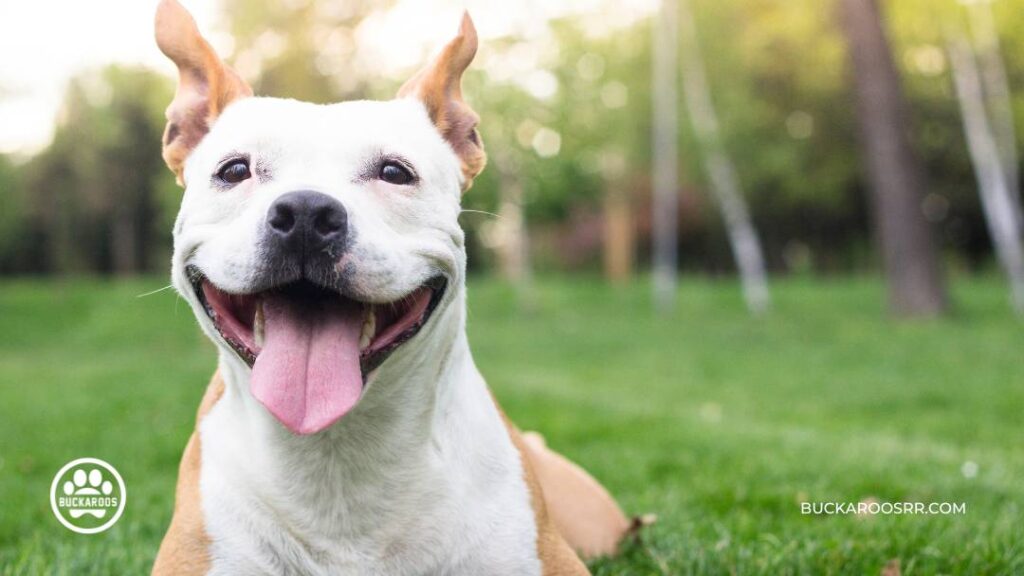
Home Remedies for Treating Parvo in Puppies
With veterinary treatment, you can also opt for home remedies for treating parvo in puppies. Some home remedies you can adopt include-
Give them enough water, IV fluids, and electrolytes to keep them hydrated. This will boost their immunity.
Garlic works really well in controlling parvo symptoms in puppies. It has antiviral properties and helps boost their immune system.
Raw egg yolks work very well in treating parvo in puppies. It is filled with antibodies that can fight against parvo.
Protein-dense meats like lamb liver and beef also help in faster recovery.
Giving Vitamin C, rich fruits, and supplements also help fight against the virus. You can feed them twice each day.
Activated charcoal can help relieve stomach pains and clear digestive problems.
To Conclude
Parvovirus is a deadly infection and needs immediate hospitalization once diagnosed. It’s best to get your dog vaccinated with all the parvo shots to avoid the disease from getting severe. Even if your pup develops parvo, no need to worry.
Just rush them to our expert vets in Ada and Paul’s Valley.




